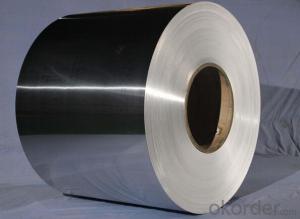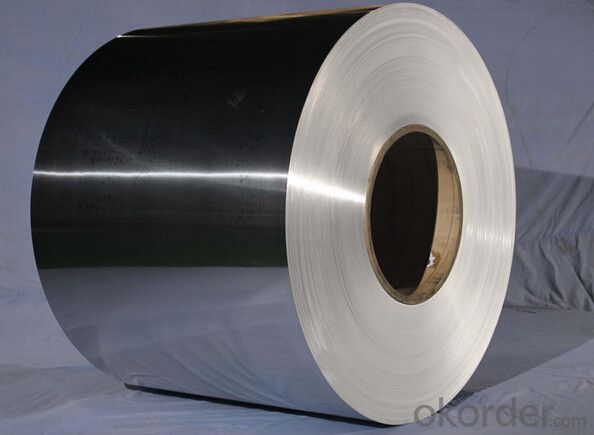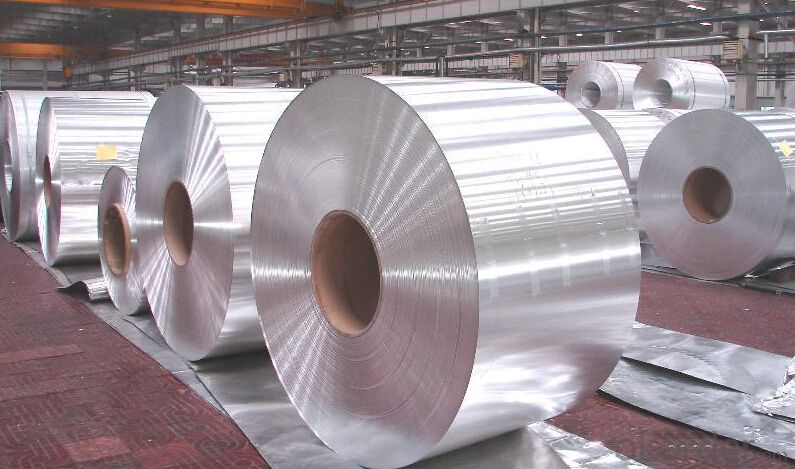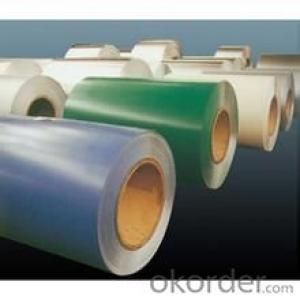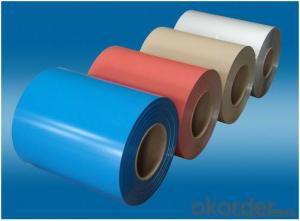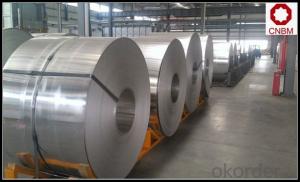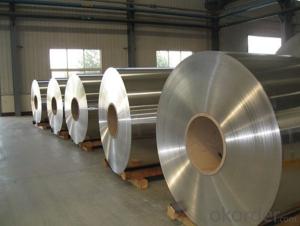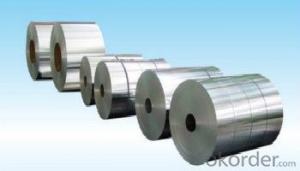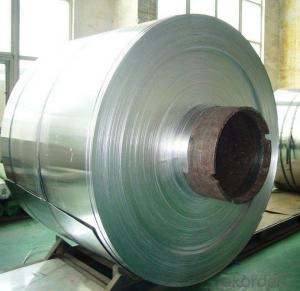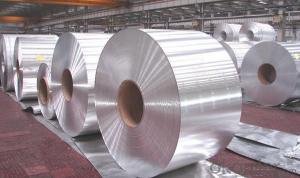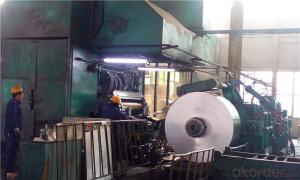Home Depot Aluminum Coil 3003 H14 H24 Mill Finished
- Loading Port:
- Shanghai
- Payment Terms:
- TT OR LC
- Min Order Qty:
- 5 m.t.
- Supply Capability:
- 6000 m.t./month
OKorder Service Pledge
OKorder Financial Service
You Might Also Like
Specification
Aluminum Coils 3003 H14 H24 Mill Finished
1050 1060 1070 1100 1235representative series aluminum plate is also known as pure aluminum, in the series in 1xxx series belongs to all the alumina quantity of a maximum number of series. Purity can achieve 99.00% above
3xxx series aluminum represents 3003 3004,3005, 3 A21 primarily. And can be called in the 3xxx series aluminum antirust aluminum production process more outstanding. The 3xxx series aluminum plate is by manganese as the main component. Content at 1.0-1.5 between. Is a rust-proof function better series. Conventional application in the air conditioning, the refrigerator, such as car in damp environment.
6xxx series represents 6061 mainly contain magnesium and silicon of two elements, so focused on the 4000 series and the advantages of the 5000 series 6061 is a cold treatment aluminum forging products, apply to fight against corrosion, oxidizing demanding applications.
Description
item | 1050 1060 1100 3003 Aluminum coil | |
Standard | GB/T3190-2008,GB/T3880-2006,ASTM B209,JIS H4000-2006,etc | |
Material | 1060,1050,1100 3003,3103,3004,3005,3105 5052, 5454,5754 | |
Size | Thickness | 0.5mm-3.5mm |
Width | 800-1500mm | |
Weight/Roll | About 1.5MT/3MT | |
Quality control | Mill Test Certificate is supplied with shipment, Third Part Inspection is acceptable. | |
Surface | Bright, polished, hair line, brush, checkered, embossed, etc | |
Trade terms | Price term | ,FOB, CNF, CIF, etc |
Payment Term | TT,L/C | |
MOQ | 2MT | |
20 GP Capacity | About 20-25MT | |
Delivery time | 1.The products will delivery immediately after receiving the payment. 2.According to the order quantity, prompt delivery. | |
Export to | Ireland,Singapore,Indonesia,Ukraine,Spain,Canada,USA,Brazil,Thailand,Korea,Iran,India,Egypt,Kuwait, Oman,Viet Nam, South Africa, Dubai, Russia, etc | |
Package | Stick blue film→plastic film→waterproof paper→1~2 tons on a export standard pallet(corner protection) | |
Application | 1)Further making utensil.2)Solar reflective film3)The appearance of the building4)Interior decorating:ceilings,walls,etc.5)Furniture cabinets6)Elevator decoraction7)Signs,nameplate,bags making.8)Decoration inside and outside the car9)Household appliances:refrigerators,microwave ovens,audio equipment,etc.10)The consumer electronics:mobile phones,digital cameras,MP3,etc. | |
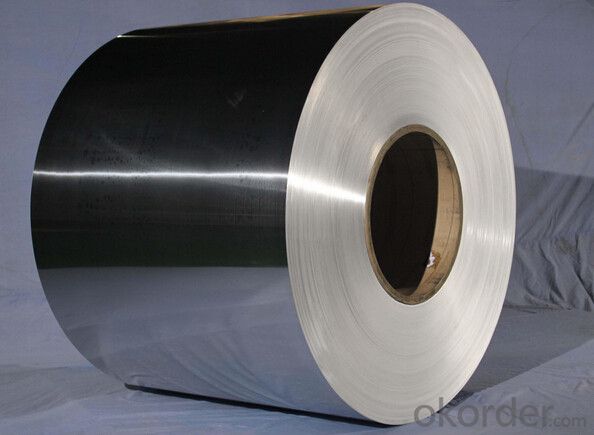
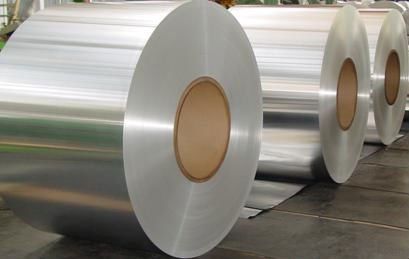
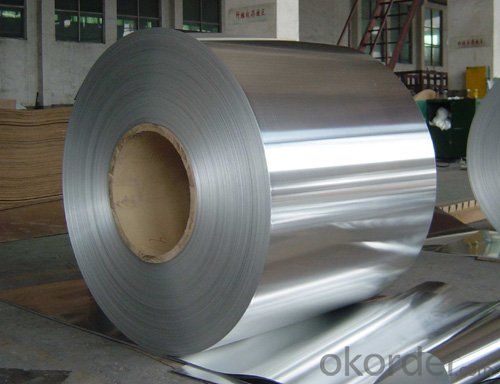
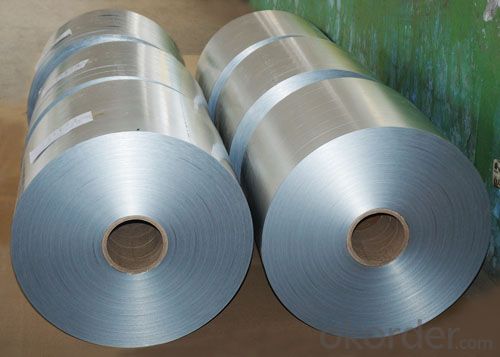
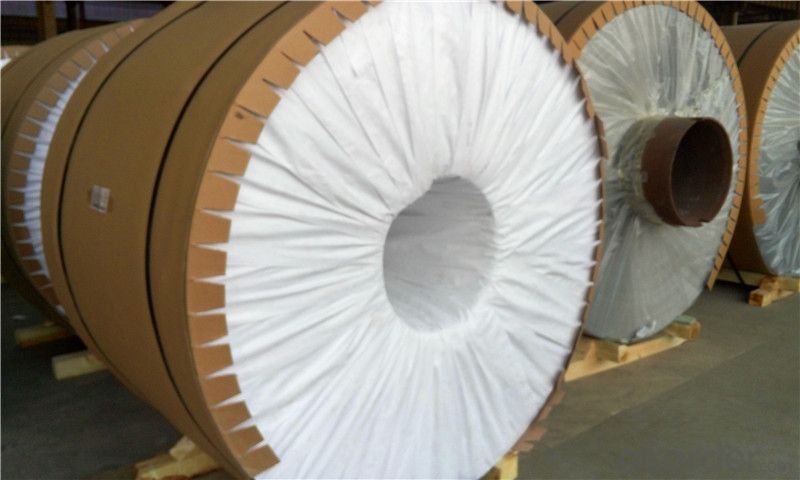
- Q: What are the safety precautions required when handling aluminum coils?
- To ensure the safety of individuals and minimize the risk of accidents, it is important to adhere to certain safety precautions when dealing with aluminum coils. 1. Wearing the appropriate Personal Protective Equipment (PPE) is essential. This includes safety glasses or goggles, gloves, and steel-toed boots. These protective items safeguard against injuries caused by sharp edges or flying metal particles. 2. To avoid strains or back injuries, it is important to employ proper lifting techniques when handling heavy aluminum coils. Lift with your legs, not your back, and utilize lifting aids or equipment when necessary. 3. Proper storage and handling of aluminum coils are crucial. Store them in a well-ventilated area that is free from excessive heat or moisture. It is imperative to stack them securely to prevent injury from falling or rolling coils. 4. Fire prevention measures are vital due to the high flammability of aluminum in the form of fine powder or shavings. Keep the working area clean and free from combustible materials. Smoking or open flames should be strictly prohibited in the vicinity. 5. Be cautious of sharp edges on aluminum coils, as they can cause cuts or lacerations. Handle the coils with care and use appropriate tools or equipment when cutting or shaping them to minimize the risk of injury. 6. Provide proper training and education to all individuals involved in handling aluminum coils. This includes understanding the properties of the material, safe handling techniques, and emergency procedures in case of accidents or spills. 7. Be aware of potential chemical hazards associated with coatings or treatments on aluminum coils. Follow the appropriate safety procedures when handling or working with them. By adhering to these safety precautions, the risk of accidents, injuries, and potential hazards can be significantly reduced when handling aluminum coils. Prioritizing safety and ensuring that all employees are trained and equipped with the necessary knowledge and protective gear is crucial.
- Q: Are aluminum coils compatible with other materials?
- Indeed, other materials can be used in tandem with aluminum coils. Aluminum, being a versatile and extensively utilized substance, readily blends with various materials for different purposes. Take, for instance, the utilization of aluminum coils alongside copper tubing in air conditioning and refrigeration systems to amplify heat transfer efficiency. Furthermore, aluminum coils can be coated or layered with polymers or paints to furnish supplementary safeguard against corrosion, enhance visual appeal, or elevate specific performance attributes. Consequently, aluminum coils exhibit compatibility with a multitude of materials, rendering them apt for an array of applications within industries like construction, automotive, aerospace, and beyond.
- Q: Why does the hollow aluminium rolling shutter door fall off for a long time?
- Aluminum Alloy thermal cooling fast, excellent seismic performance, the design of hollow base not only greatly reduce the heat conduction, but also effectively reduces the acoustic resonance effect, suitable for hot summer and warm winter area and some noise pollution area.
- Q: Can aluminum coils be used for outdoor applications?
- Yes, aluminum coils can be used for outdoor applications. Aluminum is highly resistant to corrosion and weathering, making it a suitable choice for outdoor use. Additionally, aluminum coils are lightweight, durable, and have excellent thermal conductivity, making them ideal for various outdoor applications such as roofing, gutters, and HVAC systems.
- Q: How are aluminum coils typically stored and transported?
- Aluminum coils, in order to safeguard them and avoid any harm, are typically stored and transported in a manner that guarantees their protection. They are commonly stored in a warehouse or storage facility, maintaining a vertical position to prevent any bending or warping. Regarding transportation, specialized coil trailers or flatbed trucks are often utilized to transport aluminum coils. These trailers are designed specifically to securely hold the coils in place during transit. Straps or bands are typically employed to fasten the coils tightly, preventing any movement or shifting while on the road. Furthermore, it is customary for aluminum coils to be enveloped in protective materials such as plastic or cardboard during transportation. This extra layer of protection serves to shield the coils from moisture, dirt, and other potential hazards. It is of utmost importance to handle aluminum coils with caution to avoid any damage, as even minor dents or scratches can impact their performance. Hence, employing appropriate storage and transportation methods is vital to ensure that the coils reach their destination in optimal condition.
- Q: What are the potential applications of colored aluminum coils?
- The possible uses for colored aluminum coils are extensive and varied, spanning across a multitude of industries. In the realm of construction, these coils serve both practical and aesthetic functions. Whether utilized as roofing material, siding, or ornamental features on structures, they offer protection against the elements while simultaneously enhancing visual appeal. In the automotive industry, colored aluminum coils find application in the creation of car body panels. The material's vibrant hues and durability make it an appealing choice for crafting stylish and long-lasting exteriors for vehicles. Additionally, the electronics and electrical industries benefit from the use of colored aluminum coils. They serve as casings for electronic devices, such as smartphones, tablets, and laptops, lending a visually pleasing touch to these gadgets. Furthermore, due to aluminum's lightweight nature, it is well-suited for heat sinks and other cooling components in electronic devices. The packaging industry can also take advantage of colored aluminum coils to produce captivating packaging materials for various products. The vibrant colors and sleek appearance of aluminum can enhance the visual allure of consumer goods, attracting potential buyers. Moreover, the furniture industry can employ colored aluminum coils to fashion contemporary and stylish furniture pieces. Aluminum's versatility allows for the creation of unique designs and shapes, adding a modern touch to interior spaces. Lastly, the signage and advertising industry can benefit from colored aluminum coils. They can be utilized to create custom signage, billboards, and promotional displays with vivid and long-lasting colors, serving as effective marketing tools. In summary, colored aluminum coils have an array of potential applications in industries such as construction, automotive, electronics, packaging, furniture, signage, and advertising. Their durability, lightweight nature, and aesthetic appeal make them a versatile material for a wide range of purposes.
- Q: and alsoHow many grams of the decay product will have formed after 8 days go by?The decay product is the new isotope created as a result of the positron decay of aluminum-24.In class my teacher didn't explain this completely but there's a question on the homework that me and even my mom (another teacher) can't find the answer to.
- so it 6000/ (2*8*24*60*60) 0.00434027778 grams have you heard of the internet an unless your mom is a chem teacher it doesnt mean much
- Q: Domestic production of color coated aluminum coil manufacturers which good?
- Color coated aluminum coil has two kinds of polyester color coating and fluorocarbon coating.
- Q: I am confused by that. One guy told me that he puts aluminium foil on his modem to receive the Internet better. Another guy told me that aluminium stops all kind of rays. What is correct?
- If you totally enclose and electronic device in aluminum foil no radiated electric fields will get through it, because it is a Faraday cage.
- Q: Is it possible to utilize recycled aluminum coils for a project instead of purchasing new ones?
- <p>Yes, you can use recycled aluminum coils in your next project instead of buying new ones. Recycled aluminum is environmentally friendly and often more cost-effective. It maintains the same properties as new aluminum, making it suitable for various applications. Ensure the recycled coils meet the quality standards required for your project. Check for any impurities or damage that might affect performance. Using recycled materials not only reduces waste but also conserves resources.</p>
Send your message to us
Home Depot Aluminum Coil 3003 H14 H24 Mill Finished
- Loading Port:
- Shanghai
- Payment Terms:
- TT OR LC
- Min Order Qty:
- 5 m.t.
- Supply Capability:
- 6000 m.t./month
OKorder Service Pledge
OKorder Financial Service
Similar products
Hot products
Hot Searches
Related keywords
